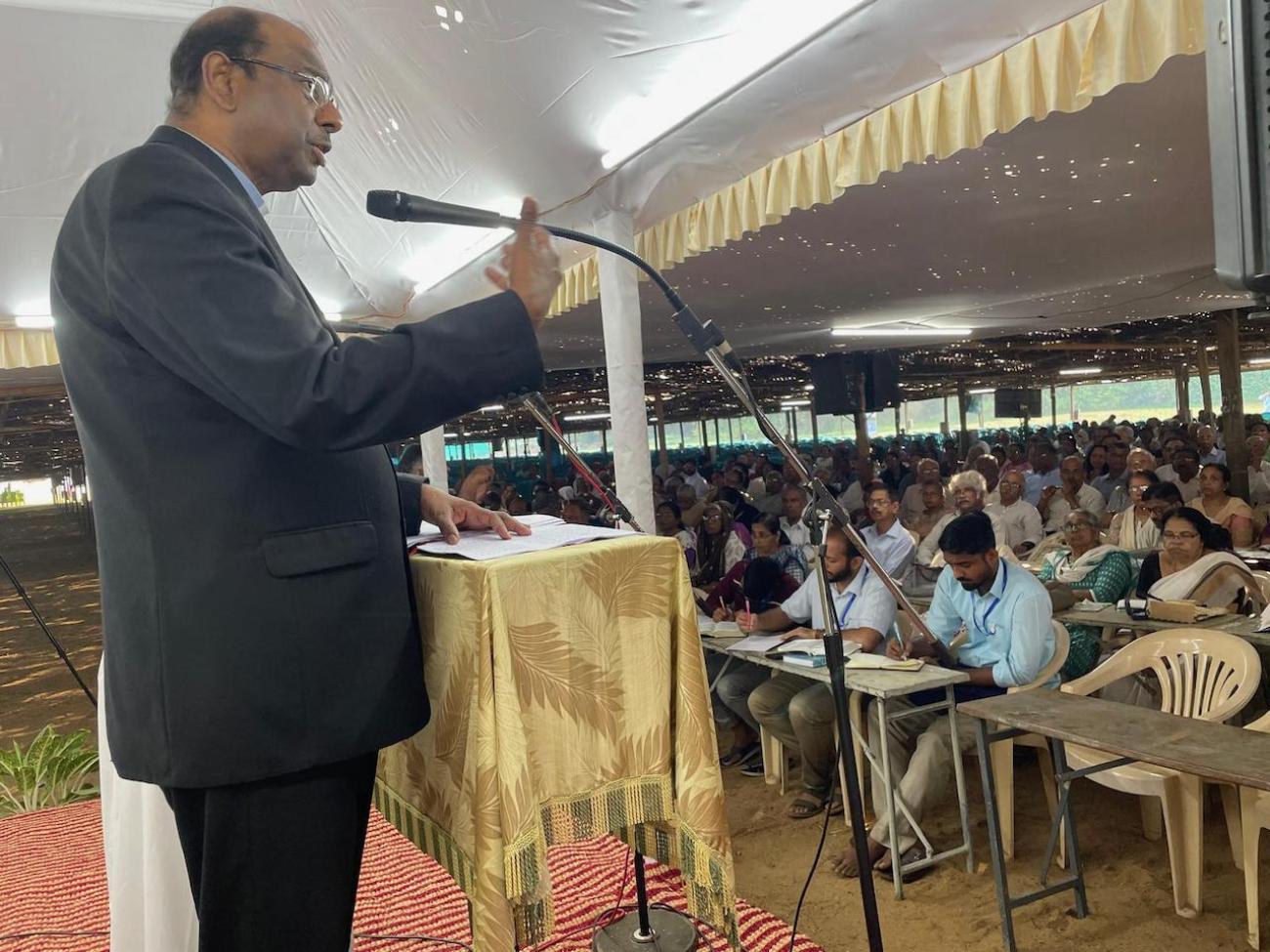In India, WCC general secretary visits church work on education and sustainable agriculture, leads Bible studies

WCC general secretary Rev. Prof. Dr Jerry Pillay leads a Bible study session during the Maramon Convention.
Photo: MTEA Media
As part of his visit to India from 8 to 14 February, World Council of Churches general secretary Rev. Prof. Dr Jerry Pillay visited diaconal and educational work of the Mar Thoma Syrian Church and led two Bible study sessions at the Maramon Convention.
On 10 February, Pillay, accompanied by Metropolitan Isaac Mar Philoxenos Episcopa and Dr Manoj Kurian, director of the WCC Commission of the Churches on Health and Healing, visited the Krishi Vigyan Kendra (KVK), Pathanamthitta, a district-level institution established by the Indian Council of Agricultural Research and managed by the Christian Agency for Rural Development, the Social Service wing of the Mar Thoma Syrian Church.
KVK serves as a crucial link between research organizations and the farming community, facilitating the transfer of advanced agricultural technologies and assisting entrepreneurs in adding value to agricultural products. The institution, recognized as the only faith-based organization managing a national agricultural program at the district level, remains committed to the community through the efforts of its staff.
The visit highlighted the vital role of faith-based initiatives in fostering agricultural development, social service, and spiritual enrichment, reinforcing the commitment to holistic community transformation.
Later on the same day, Pillay and the delegation also visited the Navajyothi School, the Mar Thoma Center for Rehabilitation and Development, which provides specialized care and training for children with mental challenges. The school, which serves 145 students, is supported by a committed team of 31 staff members, including specially trained teachers, therapists, caregivers, and a social worker.
Offering both residential and daycare facilities, the institution remains dedicated to nurturing and empowering its students. During their visit, the guests were welcomed with an entertainment program and gifted with handcrafted artworks created by the children.
Bible studies
As part of his participation at the Maramon Convention, Asia’s largest Christian gathering, Pillay led two Bible studies.
The first, on 10 February, was under the theme of “The Kingdom of God and World Transformation.” His message explored the biblical perspective on the Kingdom of God and its relevance, meaning, and impact on the world today.
“The world and its history are under the rule and authority of God. The prophetic task of the church is to speak and act out against any form of oppression, unjust laws and systemic evil,” he said.
“It is this prophetic calling that enables churches to stand up against racism, xenophobia, ethnic violence, gender discrimination, economic, social and political injustices. The focus on the kingdom of God warrants a transformation and healing of a broken and suffering world,” added Pillay.
On 11 February Pillay reflected on “Why I need the Holy Spirit?”, focusing on the texts of Ezekiel 37:1-10 and John 16: 1-15.
In his reflection, the WCC general secretary underlined that the Spirit “helps us to be a confessing Christian and a confessing church in a struggling and sinful world.”
“Jesus went out in the power of the Spirit into the wilderness to face the devil. We go out into the world to face our giants, powers of evil, and principalities to confess to the Lordship of Jesus Christ. The Holy Spirit gives us power to confess that Jesus is Lord,” he said.










